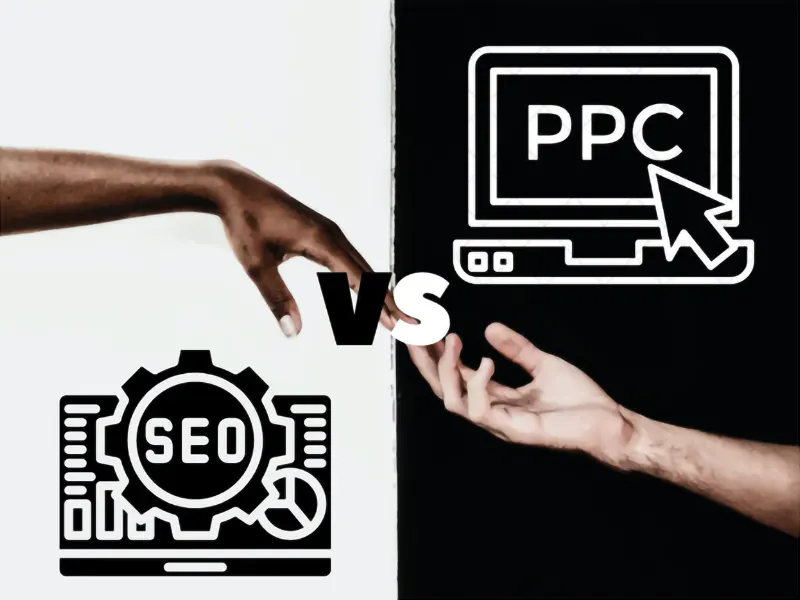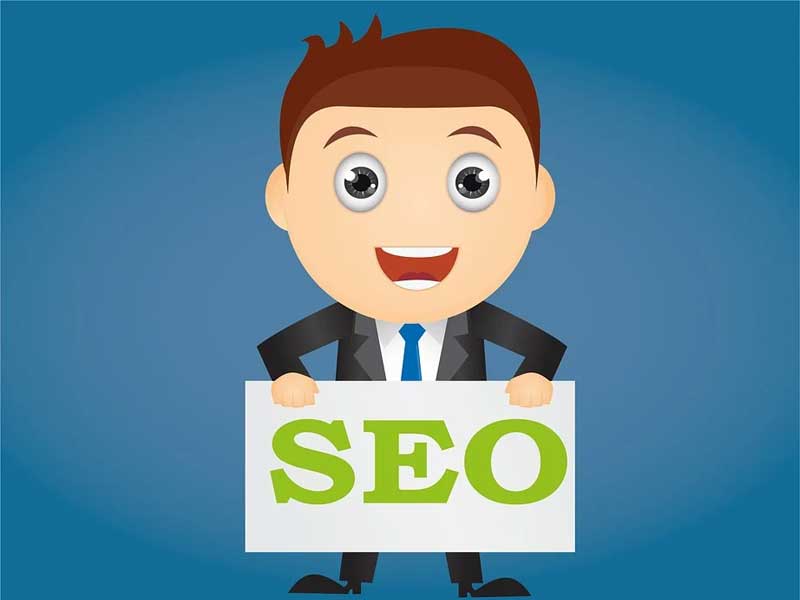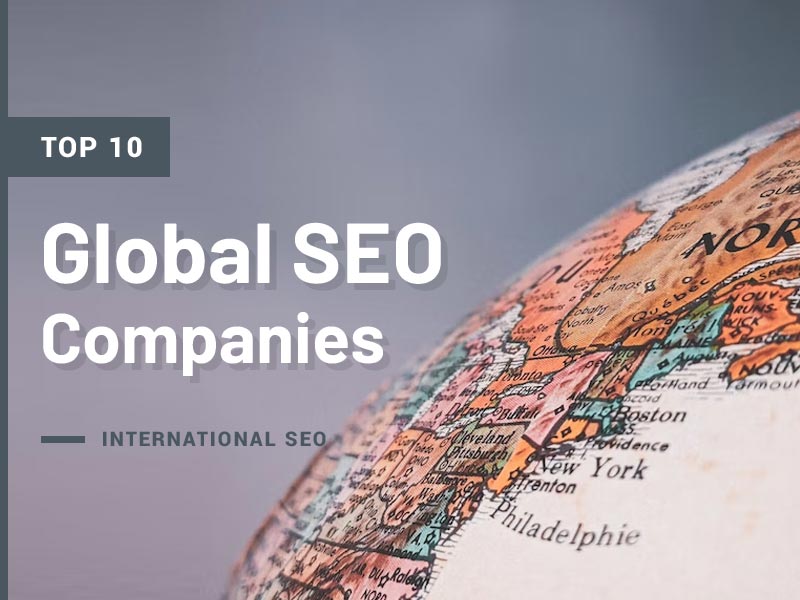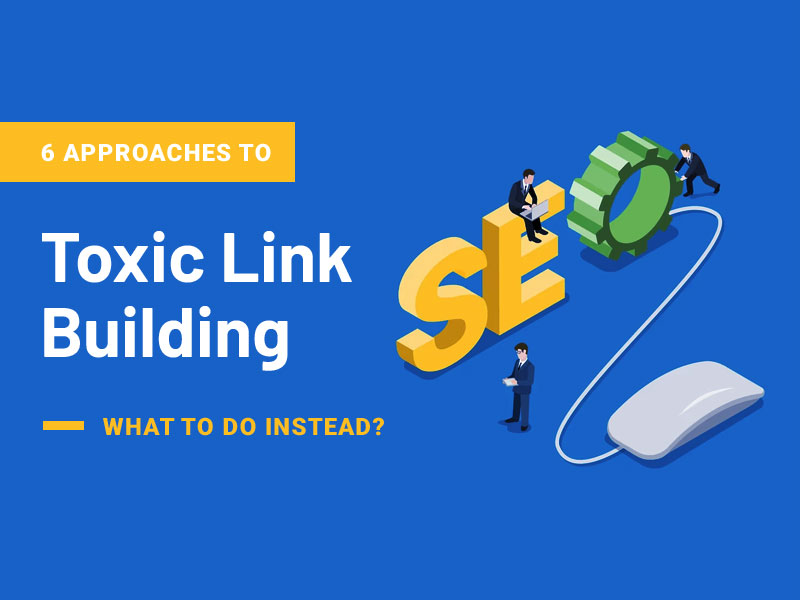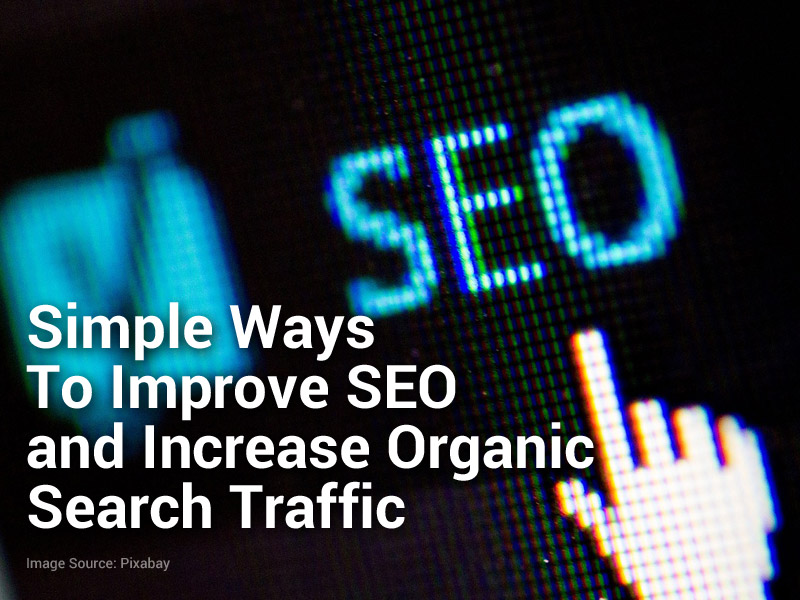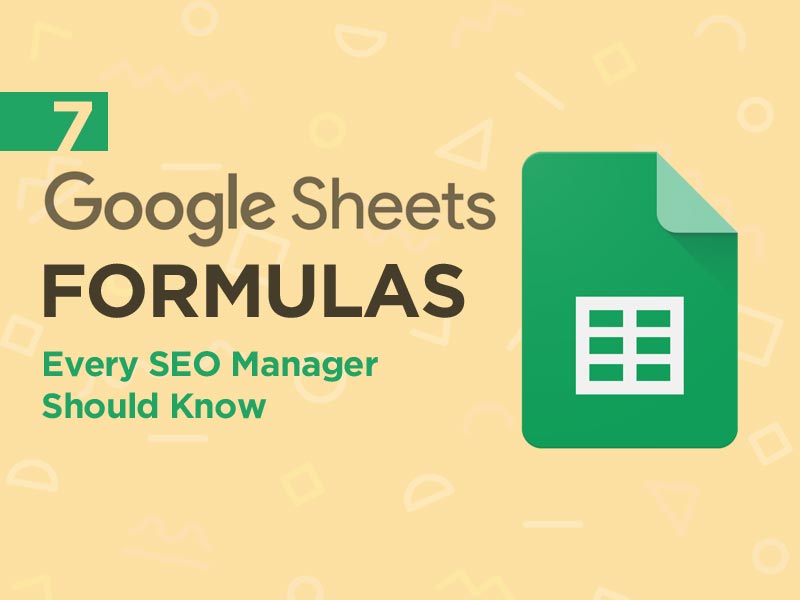Are you trying to amplify your online visibility, captivate a broader audience, and bring a flock of eager customers to your digital doorstep? In the vast digital marketing realm, where relentless search engine algorithms dictate the flow of success, Search Engine Optimization (SEO) and Pay-Per-Click (PPC) advertising, are the two famous strategies. But which path shall you take to lead your business toward successful digital business?
SEO employs an arsenal encompassing technical SEO, local SEO, and content marketing. In SEO, keywords reign supreme, which propels your website toward great organic search results. On the other hand, PPC is paid search that works in tandem with search engines and other digital platforms. PPC advertising becomes a channel for rapid awareness, avoiding the laborious ascent of organic SEO and showcasing your brand’s offers to those looking for them.
But how does one navigate these alternatives, where SEO and PPC are tantalizing options with their benefits? Do not worry, Impressive Digital: Your trusted Ecommerce SEO Agency, will enlighten you about the contrasts among these approaches, helping you make an educated decision that aligns with your marketing goals.
Understanding SEO
SEO involves a range of tactics to improve your website and its content all with the goal of achieving rankings, on search engine results pages (SERPs). By selecting keywords creating high quality content and effectively using various on page and, off page optimization methods you can greatly increase your websites visibility and attract organic traffic.
Benefits of SEO
The implementation of Search Engine Optimization (SEO) offers advantages to businesses encompassing a range of benefits that can have an impact, on their growth and overall success. Here are some key advantages of SEO:
Increased Organic Visibility
Your site can accomplish improved natural perceivability, guaranteeing it shows up unmistakably in web crawler results. This uplifted perceivability assumes a critical part in creating a more huge number of snaps, which, thusly, prompts expanded brand openness and higher potential for changes.
Cost-Effectiveness
In contrast to PPC advertising, that demands direct remuneration for every click received on your website. SEO operates with a unique approach. Through SEO, the focus is never on financial transactions for each click. In contrast, it concentrates on boosting your website’s organic presence and placement in search engine results through precise optimization strategies.
Credibility and Trust
Once it concerns digital credibility and trustfulness, sites that achieve higher natural rankings hold a noteworthy benefit. The innate ability of SEO is in enhancing visibility and propelling organic traffic. Additionally, it molds users’ perspectives and creates your image as an expert presence in your field or specific area.
Limitations of SEO
Despite the positives of web SEO strategies cannot be denied, it’s essential to acknowledge that this online advertising tactic does come with several intrinsic constraints that are valuable taking into account.
Time-Intensive Results
SEO results have a temporal nature due to the intricate interweaving of various elements within search engine algorithms and the competitive digital landscape. Getting top positions in search results demands a holistic strategy that encompasses meticulous keyword research, on-page optimization, technical enhancements, link building, constant monitoring, and adaptability. For immediate results, SEO might not be the optimal choice.
Algorithm Changes
Search engines continuously enhance the user experience and deliver more relevant and valuable search results by refining and updating their algorithms. Remaining vigilant and adapting strategies is essential for website owners and SEO practitioners, as algorithmic adjustments have a significant impact on the ranking and visibility of websites.
Understanding PPC
Pay-per-click (PPC) ads sparked a web revolution, transforming marketing methods. Through PPC, companies can cleverly display ads to users searching for keywords or checking related sites. It reaches the perfect audience, boosting possibilities for fresh leads and conversions. The name says it all – marketers pay only upon user engagement, ensuring precise and budget-friendly marketing.
Benefits of PPC
Pay-per-click advertising packs in loads of gains and pluses, making it a real find for businesses aiming to amp up online visibility and reach notable outcomes. Now, let’s dive into some of the key benefits that PPC brings forth:
Immediate Results
The charm with pay-per-click (PPC) campaigns lies in their swift results upon ad activation. This proves vital for time-bound promotions, precise marketing objectives, or the urgent push to boost website traffic and achieve prompt conversions.
Precise Targeting
Pay-per-click (PPC) advertising grants businesses might and precise ad targeting. By employing PPC’s targeting capabilities, they optimize campaigns, reaching the proper audience for impressive conversion rates and return on investment.
Measurable ROI
PPC advertising comes with a perk – clear analysis and performance metrics. They aid businesses in grasping campaign effectiveness and return on investment. Through this analysis, companies track vital metrics like CTRs, conversion rates, CPA, and other relevant data. This facilitates data-driven decisions and ongoing campaign improvement for enhanced results.
Limitations of PPC
While Pay Per Click (PPC) advertising undeniably provides benefits, for businesses looking to boost their presence and attract targeted traffic it’s important to recognize that like any marketing strategy PPC also comes with its own set of limitations that businesses should be mindful of. Lets delve into some of the constraints associated with PPC:
Cost
PPC campaigns often come with expenses in highly competitive industries or when targeting popular keywords. The competitive bidding landscape within these industries often drives up the cost per click making it crucial for businesses to carefully manage their budgets and strategically allocate resources to maximize their return on investment (ROI) from their PPC campaigns.
Ad Fatigue
Ad Fatigue; Excessive exposure to PPC ads can result in ad fatigue among users. Ad fatigue sets in when users become accustomed to encountering similar ads leading to decreased engagement, lower click-through rates (CTRs), and ultimately, reduced conversions.
When ads are displayed frequently or lack targeting, users may experience what is known as “banner blindness“. Banner blindness refers to the tendency of users to subconsciously ignore or overlook ads especially if they appear in locations or follow patterns.
Comparing SEO and PPC
Let’s check out the SEO and PPC methods for making decisions. Comparing them helps understand their differences, pros, and cons. This understanding leads to choosing the right strategy for your business goals.
| Factors | SEO | PPC |
|---|---|---|
| Cost | Lower long-term costs | Immediate costs per click |
| Time | Long-term strategy | Immediate results |
| Sustainability | Builds long-term visibility | Reliant on ongoing investment |
| Audience Targeting | Broad targeting | Precise targeting |
| Click Costs | Free organic clicks | Paid clicks |
| Analytics | Limited keyword insights | Detailed campaign data |
Taking a glimpse at SEO and PPC, including cost, time span, manageability, focusing on capacities, and click cost. By scrutinizing these factors, businesses gain insight to choose the right approach for their targets and assets. SEO brings organic visibility and long-haul benefits, while PPC offers swift results, precise targeting, and adaptability.
Factors to Consider
While picking either SEO and PPC, it is critical to figure out the great attributes, benefits, and downsides of each methodology, giving you an educated choice lined up with your business goals. We should look at the fundamental factors to consider while gauging the decision between SEO and PPC:
Brand Awareness
Decide your promoting objectives and designer them to suit every procedure’s attributes. SEO and PPC can accomplish this goal if you plan to help brand visibility and lay out a web-based presence.
- SEO: It deals with improving organic rankings, bit by bit further developing brand visibility and trustworthiness.
- PPC: It gives fast and quick visibility at the top search result, quickly presenting your brand to to your target crowd.
Evaluating the urgency of brand awareness and your approach to long-term growth versus immediate visibility will help in making your decision.
Lead Generation and Conversions
Figuring out lead generation’s urgency and the delicate harmony of long-term organic growth versus immediate conversions will steer you towards the optimal strategy.
- SEO: Drawing in organic traffic as users search for products or services they need, it brings forth better leads. But gaining notable organic rankings might require some time, thus impacting the pace of lead generation.
- PPC: In a snap, it offers clear sight, propelling specific visitors for speedy lead creation and transformations.
Understanding the pressing need for generating leads and finding a harmonious blend of long-term organic expansion and quick conversions will steer you in the right direction.
Budget
Check out the funds you have on hand and gauge how much you can spend on marketing. Your budget plays a big part in shaping the size and range of marketing actions, directly affecting the strategies you can go for.
- SEO: Although it demands investments in content creation, optimization, and possibly hiring experts, it proves cost-effective in the long run. Once a website attains a favorable ranking, it can generate consistent organic traffic and leads without major additional costs.
- PPC: For immediate visibility, quick outcomes, or short-term promotions, channeling your budget towards PPC might be more suitable. PPC requires ongoing financial commitment to sustain visibility and traffic. Stopping PPC campaigns can cause an immediate decline in visibility and traffic.
Take a moment to weigh your financial resources and the anticipated ROI to gauge the practicality of each approach given your budget.
Competition
Now, we’ll dive into the competitive scene to unearth intel on hurdles, chances, and expenses for online presence and triumph. Next up, we’ll examine your marketing campaign: SEO or PPC auctions.
- SEO: In fierce competition, industries might require vast fine-tuning, crafting, and link-weaving to outshine adversaries and heighten natural visibility. By delving into the landscape of organic searching, one unveils the rivalry’s intensity in claiming prime spots on search engine result pages (SERPs) via SEO.
- PPC: In industries where competition runs wild, bidding wars soar, and CPCs go up. To make your marketing work, grasping the PPC auction rivalry is key.
By taking a thorough gaze at SEO and PPC competition, you’ll grasp the competitive world of your industry, hone your strategies, and forge standout tactics for the marketplace.
Target Audience
Grasping and seizing your audience’s online routines and decisions matter greatly. Examine their doings, likes, and exchanges in the digital realm to adapt your SEO and PPC approaches for genuine engagement and bonding.
- Demographics: Spot demographics to enhance marketing methods. The younger crowd fancies social media, while the older bunch opts for search engines when seeking info.
- Online Platforms: Find out where your ideal interest group roams the online realm – think Facebook, Instagram, Twitter, and LinkedIn, the usual virtual hangout spots.
- Search Behavior: Understanding your target audience’s online search habits is vital for successful SEO and PPC. This allows content optimization and targeting relevant keywords for better ad connection and high-quality clicks.
- Content Preferences: Discover the content flavors that appeal to your target audience, making SEO and PPC efforts fruitful. Generate excellent, captivating SEO content and create ad copy that connects and boosts PPC click-through rates.
- Online Interactions: Delve into your target audience’s online interactions. For SEO, share insights in forums or groups to gain credibility. In PPC, utilize targeting options for displaying ads tied to user behavior, amping up conversions.
When you understand your target audience’s ways and tastes, you optimize SEO and PPC for genuine engagement. This knowledge shapes keyword choices, platform picks, and content styles for personalized campaigns, boosting visibility and spurring conversions.
Which Approach to Choose?
Picking the best way isn’t a piece of cake; there’s no magical solution out there. The correct direction depends on your specific business scenario and goals, and occasionally mixing both approaches brings about improved results.
Conclusion
Wrapping it up, SEO and PPC are mighty weapons for online business triumph. SEO brings lasting visibility, credibility, and cost-effectiveness, while PPC grants swift results, exact targeting, and measurable ROI. To select wisely, gauge your goals, budget, timeline, competition, and target audience. Keep in mind, blending SEO and PPC might bring about the best results.
